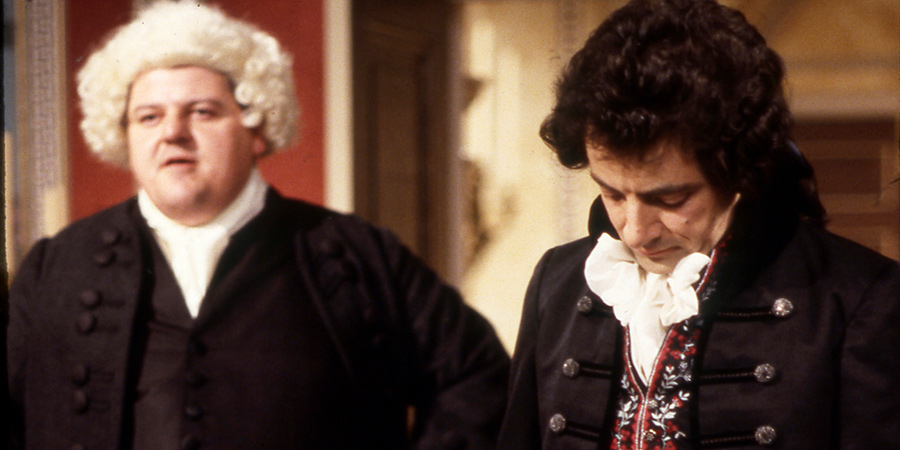Can you write a sitcom from scratch in eight weeks? Yes you can!

Dave Cohen reports back from what he's discovered in the process of running his Build A Sitcom online courses.
Since lockdown I've been running a series of courses designed to help you speed from nought to first draft in eight weeks flat.
I've just finished the fourth run and been amazed at the response. Initially I thought hardly anyone would get to the end. In the advert for my course, I hint heavily that the journey is as important as the goal, and that even if you don't finish you'll learn so much. This is what we in the business call "arse covering."
This time round almost everyone made it. It's been a privilege to witness these projects coming to life. Here's what I've learned from running the course:
The idea is everything
I think I already knew this, which is why it always gets two whole weeks, more time than anything else. The idea needs to be examined under a microscope. It needs to be so strong that all you will do over the following weeks is improve it. Will it sustain over six episodes?
Can you ever know if your idea is "the big one"? No. But this way you keep eliminating what doesn't work and get closer to finding what does.
Doesn't matter what level you are at
Over this year I've seen the complete range, from experienced working writers to those trying comedy for the first time. It doesn't seem to matter what level you are at, the "I will finish" gene is the most important.
You can't separate things out but, this way, you almost can
Sitcom is character, story, premise, jokes, twists and more jokes. It's hard to work on one aspect without impacting on another, but I try. Week 3 is character and Week 4 is plot, but over the year I've started to understand that, at this early stage, when you're still working out who your characters are, the stories you think of will help to define them. I often get character work back in Week 3 that has a lot of story. Initially I asked them to go back and think more about character, now I use their next week's homework to advance what they've already done.
Premise is not episode
A common yet understandable mistake is when a writer mixes up the underlying premise of the show with this week's episode. "Blackadder's scheming is his undoing" is the premise, "this week Blackadder's scheming causes him to fall out with Dr Johnson, who wanted to help him." You can see the similarities. Not helped when you see people say "story" (as in Story by Robert McKee) when they mean premise, and "story" when they mean what happens this week.

It's a bit like school
What did you prefer at school - Maths or English? It was always English for me. Imagine if the beauty of our wonderful language could be surpassed by the dull predictability of numbers. One and one is two. The end.
A 30 minute episode length promises infinite possibilities but there are certain restrictions that can serve as your friends. Especially if you've only got eight weeks. In the first five minutes you must establish the world, the main character or characters, the premise and a big moment that sets up this week's episode. Then we've got another 15-20 minutes for the consequences of that big moment to play out. A series of bad decisions by the main character escalates bad consequences so by the time we're around three quarters of the way through, all is lost. Now the character's errors twist the plot in a new direction, and we have about five minutes to restore equilibrium. There you go. Easy as ABC.
Psychology and sport
I love Jerry Seinfeld citing Lou Gossett Jr from An Officer And A Gentleman, the bullying officer who terrorised Richard Gere and the rest to get results. Seinfeld worried that as writers we don't hear that kind of instruction any more. I can't imagine ever being that person, but as we come close to the end of the course I find a few noisy CAPITAL LETTERED PHRASES help to spur on the faint-hearted when finishing seems impossible.
Writing a sitcom is hard
Never gets easier. You all know that don't you? I get little surges of excitement when writers break through a logic problem. But these can be followed by bursts of frustration. "If you're finding it hard then you're doing something right" I respond, like the teachers I used to despise at school for saying exactly that.
If it's such a good way of writing how come you've never tried it yourself?
Good question. Next course (June and July) I have decided to join my students. I'll be writing my own sitcom.
What's it about? I don't know yet.
Will I finish the first draft? Ask me again at the end of July.
For details on Dave Cohen's next Build A Sitcom course visit the BCG Pro courses page
This article is provided for free as part of BCG Pro.
Subscribe now for exclusive features, insight, learning materials, opportunities and other services for comedy creators.


